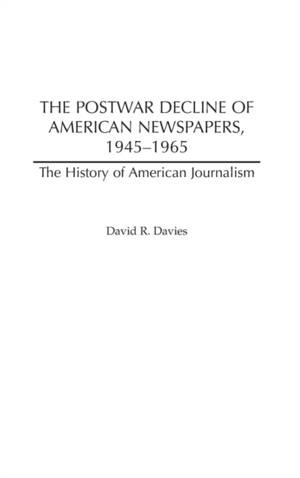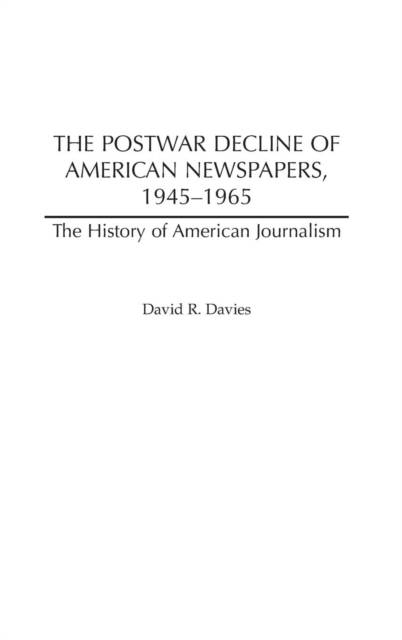
Je cadeautjes zeker op tijd in huis hebben voor de feestdagen? Kom langs in onze winkels en vind het perfecte geschenk!
- Afhalen na 1 uur in een winkel met voorraad
- Gratis thuislevering in België vanaf € 30
- Ruim aanbod met 7 miljoen producten
Je cadeautjes zeker op tijd in huis hebben voor de feestdagen? Kom langs in onze winkels en vind het perfecte geschenk!
- Afhalen na 1 uur in een winkel met voorraad
- Gratis thuislevering in België vanaf € 30
- Ruim aanbod met 7 miljoen producten
Zoeken
Omschrijving
On the surface, the American newspaper industry appears to have changed little from 1945 to 1965, remaining both healthy and prosperous. The number of newspapers in 1965 was about the same as in 1945, while during the twenty-year period advertising revenues increased substantially despite new competition from television. Just as in 1945, the vast majority of newspapers went to press with improved but old-fashioned letterpress methods in 1965. And newspaper reporters still professed a strong, if now somewhat shaken, faith in the federal government at the end of the twenty years.
But the surface appearance of both stability and profitability obscured profound change. In the two decades after World War II, the business of newspaper publishing changed significantly in myriad ways. By 1965, editors and publishers had recognized the extent of these changes and were beginning to adjust. Each of the changes was significant of its own accord, and the range of challenges throughout the period combined to transform newspapers and the nation they served by 1965. This transformation was evident, to varying degrees, in newspapers' content, their production methods, their economic position within the overall media marketplace, and their relationship with government. Newspapers - some more than others - made strides to keep up with and overcome some of these challenges. But in each of these areas, newspapers as a group were slow to respond to the problems facing journalism.Specificaties
Betrokkenen
- Auteur(s):
- Uitgeverij:
Inhoud
- Aantal bladzijden:
- 200
- Taal:
- Engels
- Reeks:
Eigenschappen
- Productcode (EAN):
- 9780313307010
- Verschijningsdatum:
- 1/07/2006
- Uitvoering:
- Hardcover
- Formaat:
- Genaaid
- Afmetingen:
- 162 mm x 232 mm
- Gewicht:
- 458 g

Alleen bij Standaard Boekhandel
+ 254 punten op je klantenkaart van Standaard Boekhandel
Beoordelingen
We publiceren alleen reviews die voldoen aan de voorwaarden voor reviews. Bekijk onze voorwaarden voor reviews.









